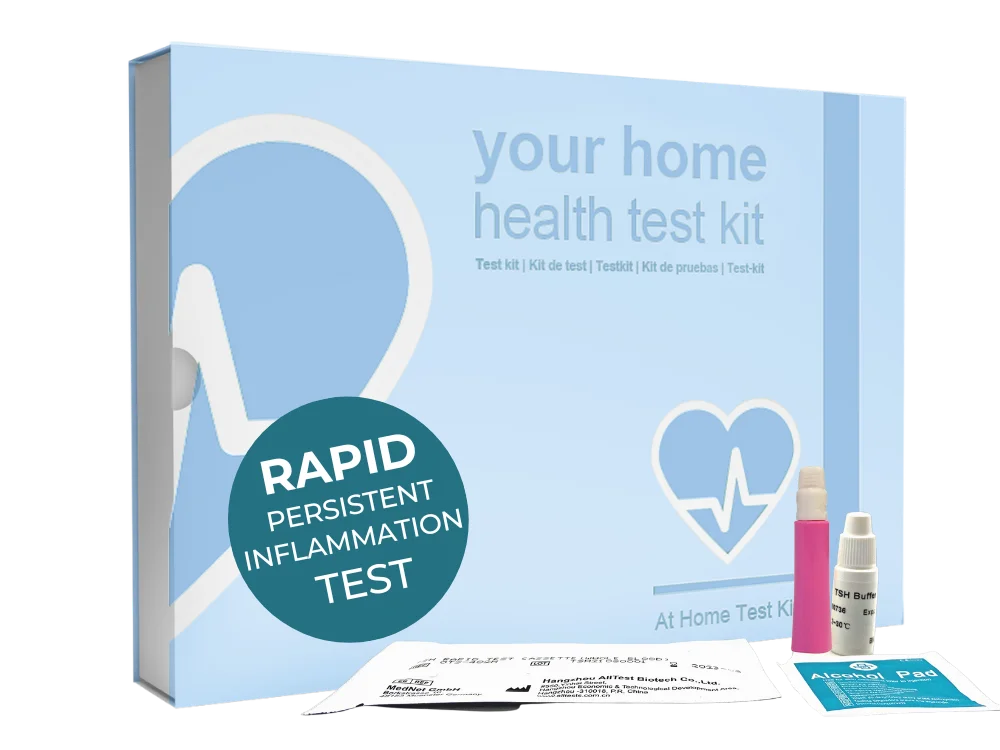Inflammation is the body's natural response to healing damaged tissue and is quite a common occurrence. However, when persistent inflammation becomes counterproductive to your health and starts to become an ever-present issue, it’s vital to recognise and diagnose the problem before your symptoms worsen.
Our easy-to-use Persistent Inflammation Test only requires a blood sample and can be done in the comfort of your own home. The test measures levels of serum amyloid A (SAA) proteins, which indicate inflammatory activity. Elevated SAA levels suggest that your persistent inflammation may have progressed to a chronic state, posing potential health risks.
Serum amyloid A (SAA) proteins play various roles, such as transporting cholesterol to the liver and recruiting immune cells to sites of inflammation. Understanding your SAA levels aids in diagnosing inflammation in your body. Elevated SAA levels may signal the need for further investigation into inflammation.
The CE approved kit is dispatched immediately upon purchase and typically arrives within 1-3 working days. Inside, you'll find comprehensive instructions guiding you through how to complete the test and receive your results in just 10 minutes.
Persistent Inflammation Symptoms
Anyone can suffer from chronic inflammation, so even if you think you live a pretty healthy lifestyle, it won’t make you immune. To trigger acute inflammation, all it takes is an infection, an unhealthy diet, or obesity. Some common symptoms of chronic inflammation are:
- Pain
- Fatigue
- Depression
- Weight gain
In some cases, these symptoms can develop further, and major chronic illness symptoms could occur. These can include:
- Heart disease
- Diabetes
- Alzheimer’s Disease
- Cancer
- Arthritis
How It Works
The Persistent Inflammation Test Kit is easy to use and can be used in the comfort of your own home. The test utilises a lateral flow cassette to identify “serum amyloid A (SAA) protein” in whole blood, serum, or plasma.
The test cassette is pre-coated with anti-SAA antibodies in the test line region, so when the specimen containing SAA is applied, it migrates upward on the membrane via capillary action, reaching the test line region, where it reacts with anti-SAA antibodies to produce a visible coloured line.
A coloured line appearing in the test region indicates a positive result, while its absence indicates a negative result.
To ensure accurate results, a coloured line must appear in the control line region, confirming the correct addition of specimen volume and proper membrane absorption.



